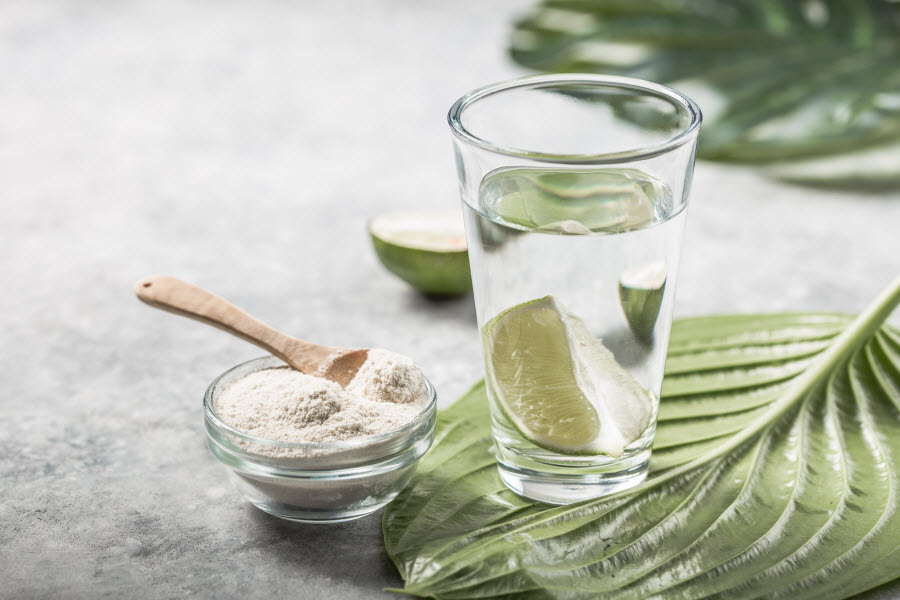Plant-Based or Vegan Collagen vs. Animal Collagen: How Do They Differ?

Every time you turn a page in a health magazine, there's another advertisement for collagen. In response to these ads, more people are taking a collagen supplement these days. It's not surprising since collagen is a protein that comprises almost 30% of the body's total protein content, making it the king among structural proteins.
Unfortunately, collagen production slows with age, especially after you reach middle age. Plus, you can damage your body's natural collagen by creating oxidative stress through smoking or exposing your skin to the sun. That's why by middle-age, most people can use a little collagen boost!
Why might taking a collagen supplement be beneficial? Collagen has an important structural function and is the key component of tendons, muscles, bones, ligaments, and skin. Based on this, you might assume it's essential for healthy joints and you'd be right. Cartilage, one of the most important components of a joint and the substance that covers the ends of bone and reduces friction, is made of collagen. It's also abundant in the dermis of the skin where it forms a network that supports your skin and makes it less prone to wrinkles and laxity. Some sources recommend collagen supplements for joint and skin health, although more research is necessary to verify their effectiveness. Still, collagen supplements are catching on in a big way.
Why Might You Need a Collagen Supplement?
The basis for taking collagen supplements is that the amino acids they contain support the body's own natural collagen production.

By supplying the building blocks of collagen, a collagen supplement may boost skin and joint health. Is there solid evidence of this? Some small studies show that hydrolyzed collagen combined with hyaluronic acid improves skin hydration and elasticity. This can translate into more youthful-appearing skin. A study that looked at collagen supplementation for joint health found that hydrolyzed collagen may slow the breakdown of cartilage due to arthritis and aging and restore some collagen loss over time.
Most collagen comes from animal sources, mainly from the bones of animals. This makes conventionally sourced collagen off-limits to people who eat a vegetarian or vegan diet. However, new lines of plant-based or vegan collagen have emerged as an alternative to animal-based collagen and contain no animal components, making them suitable for vegans and vegetarians. You might wonder how manufacturers make vegan collagen and whether it offers the same potential health benefits.
Where Does Vegan Collagen Come From?
Unlike animal-based collagen that comes from the hooves, bone, and nerve tissue of cows, manufacturers use yeast and bacteria to build collagen through genetic engineering. They do this by providing the yeast or bacteria with the necessary building blocks. Scientists place the amino acids required to build collagen into the DNA of bacteria or yeast. Once placed, the yeast or bacteria produce collagen to be used to make a supplement.
Are there advantages of vegan collagen over collagen from animals? One benefit is vegan collagen is easy and quick to mass-produce and that lowers the cost to the manufacturer and the consumer. Vegan collagen may be safer too. Since manufacturers use nerve tissue from cows to produce collagen supplements, there are concerns that consuming collagen from cows who have bovine spongiform encephalopathy, or mad cow's disease, could transfer mad cow's disease in humans. The risk of that is zero with vegan collagen since yeast or bacteria make it and it doesn't come from a cow.
Also, the risk of an allergic reaction to the collagen from yeast and bacteria is lower than if it comes from an animal. During the production of vegan collagen, manufacturers can remove allergens from the product to reduce the risk of an allergic reaction. Otherwise, vegan collagen should theoretically offer the same health benefits as collagen sourced from animal sources, but keep in mind that we need larger studies to prove the effectiveness of any collagen supplement for skin and joint health, though it looks encouraging.
The Bottom Line
You have an alternative to collagen derived from animal sources and it has certain advantages if you have allergies or are concerned about mad cow's disease. Vegan collagen is now widely available and can help you add more collagen to your diet without consuming animal products. If you take a collagen supplement of any type, be sure to let your doctor know first and be patient. It can take weeks to months to experience health benefits.
References:
- MedicalNewsToday.com. "What to know about collagen supplements"
- Nutrients. 2019 May; 11(5): 1079. Published online 2019 May 15. doi: 10.3390/nu11051079.
- Nutrients. 2019 Oct; 11(10): 2494. Published online 2019 Oct 17. doi: 10.3390/nu11102494.
- Curr Med Res Opin. 2008 May; 24(5):1485-96. doi: 10.1185/030079908x291967. Epub 2008 Apr 15.
- PennMedicine.org. "4 Head-To-Toe Ways That Collagen Can Improve Your Health"
- Dermatoendocrinol. 2012 Jul 1; 4(3): 308-319. doi: 10.4161/derm.22804.
This article is also available in other languages: Spanish, Russian.
About the Author

Kristie Leong M.D. is a family practitioner with a strong background and knowledge in the area of nutrition and lifestyle medicine. She graduated from Virginia Commonwealth University's School of Medicine in 1990 and writes about nutrition and its role in health and prevention.
If you'd like to connect with Kristie, follow her on Twitter, Facebook, Instagram, and Quora.